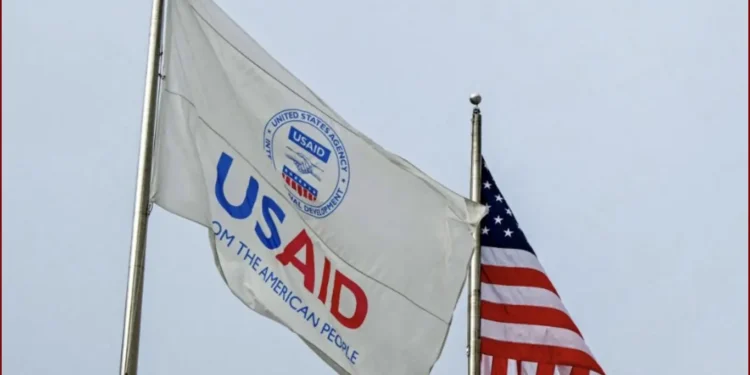- In 2024, Kenya received an estimated Ksh 83.5 billion, according to the Department of State.
- The health sector got the largest share of funding.
- The U.S. funding cuts could cripple PEPFAR, TB, and malaria initiatives should the government respond poorly.
Kenya stands to lose U.S. funding to the tune of Kshs 84 billion annually as per the estimates. In 2024, Kenya received funding amounting to Kshs 83.5 billion out of an estimated Ksh. 90 billion, according to the Department of State.
Should the 90-day halt stand after thorough review and scrutiny into the operations of U.S. Funding, then critical sectors such as health could be crippled if the government remains unprepared. This could also delay other programs across different sectors.
The United States government was the largest donor, contributing US$207 million, which is 58.8% of the total donations, according to the United Nations Office for the Coordination of Humanitarian Affairs (UNOCHA).
The health sector received the largest share of funding, amounting to Ksh 39.5 billion, followed by humanitarian assistance at Ksh 27.8 billion, economic development at Ksh 7.1 billion, and program support at Ksh 6.3 billion.
Additionally, Ksh 1.2 billion was allocated in support of democracy, Ksh 981 million to the education sector, while Ksh 309 million was used to maintain peace and security.
The health sector has consistently received the largest share of US assistance over the past five years, amounting to Ksh 1.89 billion. Kenya received an estimated Ksh 473 billion from the United States in the past five years.
The funding has been pivotal in Kenya’s health sector through initiatives such as the President’s Emergency Plan for AIDS Relief (PEPFAR), which has invested over US$8 billion in HIV/AIDS-related programs in Kenya since 2003.
The U.S. is the largest donor to the Global Fund to Fight AIDS, Tuberculosis, and Malaria, with US$407 million provided for Kenya in 2024 alone. USAID has shown success in achieving an 85% for TB treatment in Kenya.
The 90-day suspension of foreign aid by President Donald Trump could disrupt ongoing initiatives, delay access to life-saving medication, and derail the progress in addressing HIV/AIDS, TB, and vaccination efforts.
The health sector risks glaring disruption should the freeze stay after the lapse of the intended period. The Kenyan government has assured its citizens that the government is ready and looking for alternatives. The government could, however, consider slashing part of the development budget to fill the gap.







